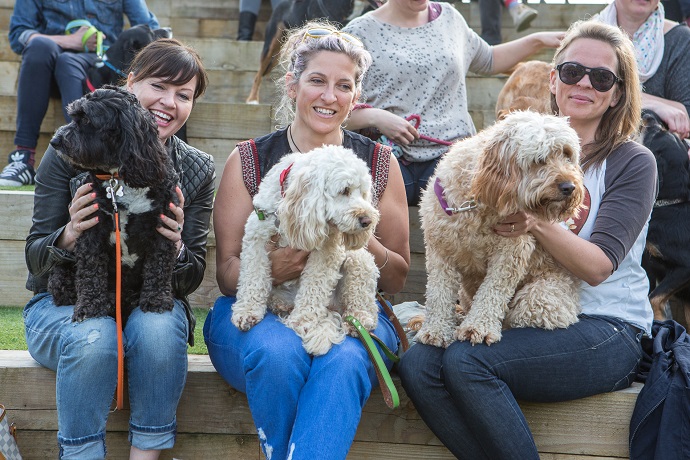
Venues around Brighton
By Sabina Dewfield
Brighton Festival has been celebrating everything esoteric, quirky and boundary pushing in the arts for the past fifty years, and this year’s programme was no exception, kicking off with Music for Dogs by the festival’s Guest Director, Laurie Anderson.
Having been premiered in New York City, this twenty-minute work for canine ears channelled a little of the Greenwich Village convention-rejecting vibe. It was hilarious; how could Anderson’s exquisite violin and electronic music, perforated by an orchestrated cacophony of whines and barks, not be? But I can’t help but feel that this was not the artist’s intention. Laurie Anderson was terribly earnest, and a dash of self-aware British humour might have softened any awkwardness, at least on the part of the human beings. As for the intended audience, judging by their wagging tails and cocked heads, they loved it.
Each year, the Brighton Festival commissions pieces showcasing the work of Brighton artists and the Brighton area. One of this year’s was The Art of Disappearing: The Last Resort, an inspired take on the seaside tourist walk. On arrival at Portslade Beach, we found ourselves crunching across the pebbles resplendent in windbreakers and headphones – our only connection to the landscape in front of us. We listened to electronic soundscapes and Big Brother-esque instructions, which walked us through a sci-fi-esque plot: we dug up toolboxes hidden in the sand; we retrieved damning conspiratorial evidence, and gave ourselves over to this alternative reality. The results were immersive and entertaining.
For the finale, Brighton Festival invited contemporary musician-cum-DJ Floating Points to perform in the Brighton Dome. This is an artist capable of producing sophisticated, multi-layered jazz-electronic music, showcased in his debut album, Elaenia. But here the auditory set-up was lamentable. All the subtlety of the music was lost, the volume too high and the flow interrupted by the live instrumental solos. What emerged was neither here nor there: if we were treating this as a pop-music gig, the seated atmosphere was far too formal. If we were there to appreciate the music intellectually, more effort should have been made to take advantage of the venue. A missed opportunity. ![]()